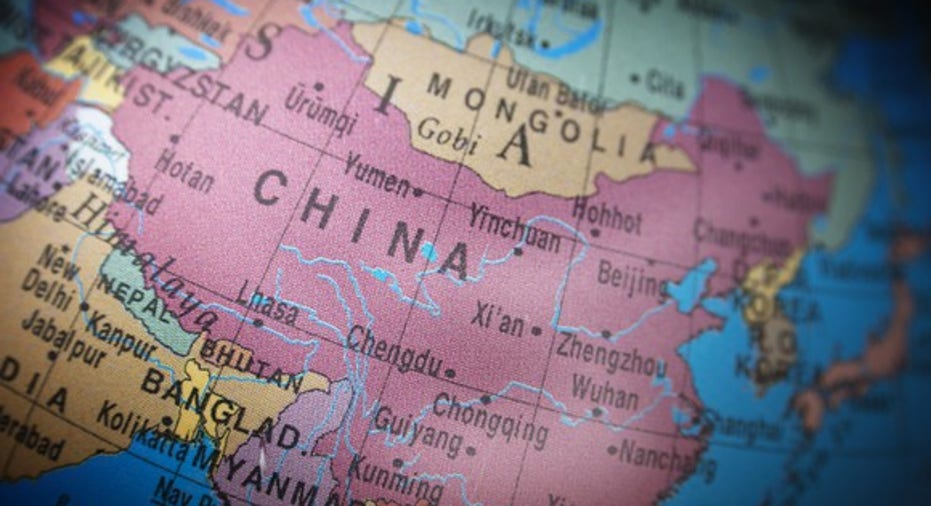What is an Emerging Market Fund?

China is the largest of the emerging markets, so Chinese stocks make up a large portion of most emerging market funds. Image source: Getty Images
An emerging market fund is a mutual fund or ETF that invests the bulk of its assets in the markets of developing countries. There are dozens of countries that qualify as emerging markets, but many common emerging market fund holdings are from Brazil, Russia, India, China, and Taiwan.
The emerging markets and why funds can be useful
An emerging market is essentially a country that isn't yet a developed market (like the U.S. or many European markets), but might become developed in the not-too-distant future. China, India, Brazil, and Russia are considered to be the four largest emerging markets, and are often known as the "BRIC countries." Mexico, Indonesia, and South Africa are other major emerging markets, and there is an extensive list of smaller countries that fit the criteria.
On the positive side of things, emerging markets tend to have favorable demographic trends and expectations of relatively high economic growth rates.
As you can imagine, stocks of companies located in these emerging markets tend to be riskier and more volatile than comparable U.S.-based stocks. Emerging countries' securities markets may be less liquid than developed markets, and may be less regulated. As a result, it can be tougher to conduct an appropriate level of analysis to evaluate potential investments.
For these reasons, it can be a better idea to invest in emerging markets through a fund. Specifically, this can spread your money across literally thousands of stocks, thereby limiting your exposure to the performance of any single company or any single country. In other words, you get the exciting upside potential that comes with developing economies, while spreading your risk around.
An example of an emerging market fund
To illustrate what an emerging market fund is, and what it might be made up of, consider the Vanguard Emerging Markets Stock Index Fund . The fund invests in a highly diverse collection of stocks (over 4,000 of them) from emerging markets, such as China, Taiwan, India, and others. In fact, here are the top 10 geographical locations of the fund's holdings, and the allocation to each one.
- China (28.4%)
- Taiwan (15.3%)
- India (12.5%)
- South Africa (8%)
- Brazil (7.3%)
- Mexico (5%)
- Russia (4.4%)
- Malaysia (4.2%)
- Thailand (2.9%)
- Indonesia (2.6%)
Notice that more than a quarter of the fund's assets are in Chinese stocks. There are obvious reasons for this -- mainly that China is the largest emerging market. However, if such a large allocation makes you uncomfortable, there are emerging market funds that specifically exclude Chinese stocks, for this reason.
Risks and reward potential
It's important to be aware of the risks that come with investing in emerging markets. In addition to the obvious volatility that comes with rapid growth, you need to be aware of the following:
- Currency risk -- If foreign currencies fluctuate against the U.S. dollar, investments denominated in those currencies will experience volatility.
- Inflation risk -- Strong economic growth can lead to higher inflation, particularly in emerging economies.
- Institutional risk -- Looser regulations make it difficult to make informed investing decisions, and can increase fraud.
- Liquidity risk -- We mentioned this one earlier, but remember that emerging markets tend to have lighter trading volumes, which means their markets are generally not as liquid as U.S. investors are used to.
- Political risk -- Emerging markets tend to have more political instability, and political conflicts and uncertainty can put added pressure on stocks.
To sum it up, there is lots of potential to profit as emerging markets develop. However, it can be nearly impossible to effectively evaluate individual stocks, and investing in emerging markets can be risky enough without putting all of your investing dollars in a handful of stocks. Emerging market funds allow investors to get exposure to these desirable economies without the guesswork and inherent risk of choosing individual stocks.
This article is part of The Motley Fool's Knowledge Center, which was created based on the collected wisdom of a fantastic community of investors. We'd love to hear your questions, thoughts, and opinions on the Knowledge Center in general or this page in particular. Your input will help us help the world invest, better! Email us atknowledgecenter@fool.com. Thanks -- and Fool on!
The article What is an Emerging Market Fund? originally appeared on Fool.com.
the_motley_fool has no position in any stocks mentioned. The Motley Fool has no position in any of the stocks mentioned. Try any of our Foolish newsletter services free for 30 days. We Fools may not all hold the same opinions, but we all believe that considering a diverse range of insights makes us better investors. The Motley Fool has a disclosure policy.
Copyright 1995 - 2016 The Motley Fool, LLC. All rights reserved. The Motley Fool has a disclosure policy.



















